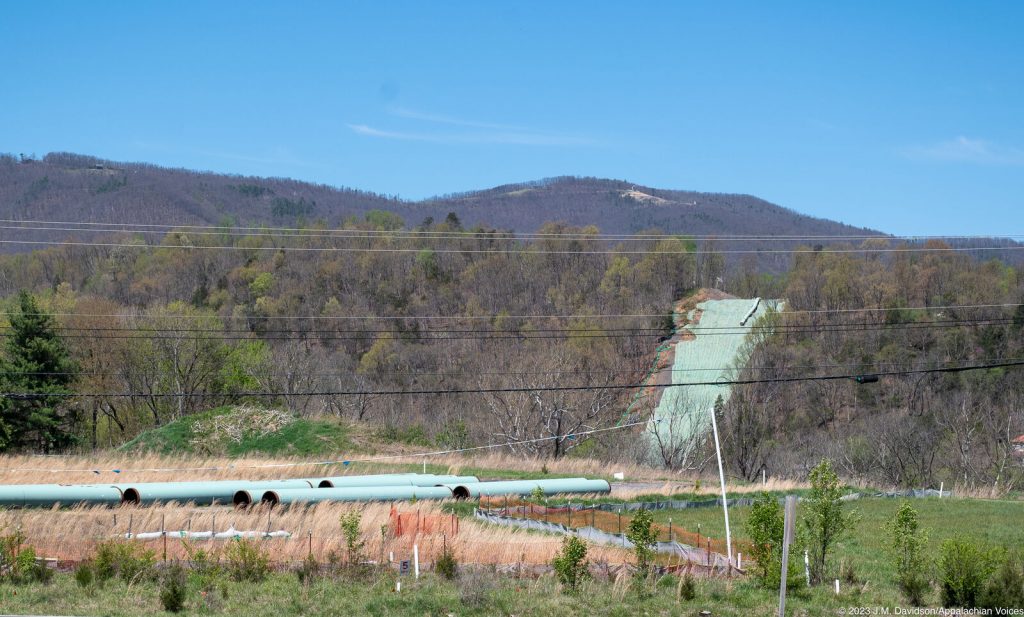Cleaning Up Coal Ash
For well over a century, power plants across the country have burned coal to generate electricity. And for just as long, leftover coal ash has been dumped in open, unlined pits near the power plant, usually located on a river or lake. Every year, U.S. power plants produce 130 million tons of coal ash, which is the second largest waste stream in the country after municipal garbage.
Coal ash concentrates the toxic heavy metals found in coal, including arsenic, mercury, lead and selenium. Stored in unlined, wet impoundments, coal ash has been leaking these toxics into our groundwater and surface waters for years. Sometimes these impoundments collapse — with disastrous results.
Yet government regulations for coal ash management are either non-existent or sparse, and there is little enforcement of the regulations that do exist. In North Carolina, this lack of oversight — and the complicity between state regulators, elected officials and Duke Energy — came to a boiling point in February 2014 when one of Duke’s coal ash impoundments spilled 39 million tons of ash into the Dan River.
Citizens living near North Carolina’s 33 coal ash impoundments — all of which have leaked — have fought for transparency from Duke and the state, and for cleanup of the pollution that threatens their property value, health and family. Their actions forced this issue into the headlines of news networks and to the forefront of environmental justice conversations in the United States.
Appalachian Voices stood with these communities as we worked for years to compel Duke Energy and the N.C. Department of Environmental Quality to excavate coal ash from all the North Carolina sites and dispose of it either in lined, dry landfills, away from waterways, or by recycling it for concrete or other uses, provided it’s done in a manner that protects public health and the environment.
On Jan. 2, 2020, North Carolina announced a historic settlement with one of the state’s most powerful corporations and polluters, Duke Energy. The settlement requires Duke to move nearly 80 million tons of toxic coal ash at six of its power plants to properly lined landfills onsite or recycle it.

Learn information about specific coal ash impoundments in the South, including health threats and safety ratings:
Additional Resources
Fact sheets, videos, links to academic research, and more
Sign Up to Act
Help us protect the health of our communities and waterways.
Latest News
Not On This Land: Documentary celebrates the community-led fight against the Atlantic Coast Pipeline
The two screenings brought together people to celebrate the fight that brought down the behemoth ACP. “Not On This Land: The Fight Against the Atlantic Coast Pipeline,” directed by Christopher Landry, profiles some of the West Virginia, Virginia and North Carolina communities who helped defeat the fracked-gas pipeline.
Sen. Joe Manchin re-introduces egregious Mountain Valley Pipeline giveaway
Today, Sen. Joe Manchin introduced a third version of his “permitting reform” bill, the Building American Energy Security Act, which, consistent with past proposals, attempts to override normal regulatory and judicial processes to create a way forward for the Mountain Valley Pipeline.
35 Organizations endorse congressional appropriations roadmap to spur coal community economic development
FOR IMMEDIATE RELEASE May 1, 2023 Contact: Trey…
Governor Youngkin, have you heard? Virginians love RGGI!
Virginians speak up about Gov. Glenn Youngkin’s proposal to exit the Regional Greenhouse Gas Initiative. RGG limits carbon pollution from power plants at the lowest possible cost while funneling millions of dollars into at-risk communities.
Saving the Tiny Bog Turtle Could Have a Big Impact on Conservation
A petition to protect southern bog turtles under the Endangered Species Act could also help protect their mountain bog homes. But with diminishing habitat and other threats, time could run out for North America’s smallest turtles.
Lawsuit launched to protect endangered West Virginia species from coal hauling
Conservation groups intend to sue the U.S. Forest Service over the agency’s failure to protect several endangered species from the harmful effects of coal hauling in the Monongahela National Forest. The suit would also protect the species’ critical habitats.











